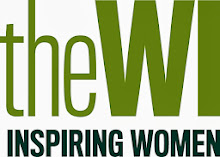There has been extensive press interest in the proposed “factory farming” resolution, both before and after the AGM, and whilst most has positively recognised that more discussion is needed, an article in Farm Business recently caused me to put pen to paper to try to explain the situation to the Editor. I have copied the letter I sent over to him below for your information.
Dear Sir,
I am writing to respond to the recent article “Time to Focus on Jam again” (Farm Business 24 June 2011) which fails to recognise a key factor; the National Federation of Women’s Institutes does not have, and never has had, any kind of mandate to work on the issue of large-scale farming. Delegates at the AGM rejected a vote on one of their resolutions looking at planning permission surrounding large-scale farming units on 8 June 2011, calling on the industry and relevant bodies to open up a rational and transparent debate on the future direction of UK farming.
Every year, WI members put forward a range of issues for national debate at the AGM, which, if passed, go on to become the mandates that form the basis of the organisation’s campaigning and awareness-raising activities in the future. As a unique organisation, the resolution process means that members play a central role in defining policy and bringing issues onto the WI's national agenda; this ensures that the entire process is wholly democratic. Many people from many organisations, both farming and other, were very interested in the large-scale farming resolution before it reached the AGM. That the mention of factory farming of large animal caused such a stir surely means that there is a very big discussion and debate to be had on the very subject.
The WI’s resolutions and mandates are first and foremost a tool to raise awareness of any given issue – a way of educating not only WI members, but the local community as well as the wider population.
What happened with this resolution proves without doubt that the women who were debating it at the AGM are intelligent and they realise that more discussion is needed on the issue of factory farming in the UK including, but not excluding, the issues of local and sustainable food; animal welfare; food security for the future; protection of the countryside; and the concern with slurry and water tables.
The women “deep within the organization” are WI members whose vote holds no more sway that any member in any WI. Might I suggest that Caroline Whibley visit a WI, even join one, to learn just what the WI is truly about.
And as for jam, WI members have never stopped making jam since it’s formation in 1915. In October, we are holding the second WI Real Jam Festival at the WI’s own Denman College in Oxfordshire where everyone can learn to make jam as well as enter a pot into the competition – there are classes for everyone from the connoisseur to the beginner.
Yours etc…
Ruth Bond
Chair of the NFWI
skip to main |
skip to sidebar

Ruth Bond is the Chair of the National Federation of Women's Institutes
About Me

- The NFWI
- London, United Kingdom
- I am the Chair of the National Federation of Women's Institutes: the largest voluntary women's group in the UK. We offer women the chance to learn new skills and campaign on issues that matter to them.